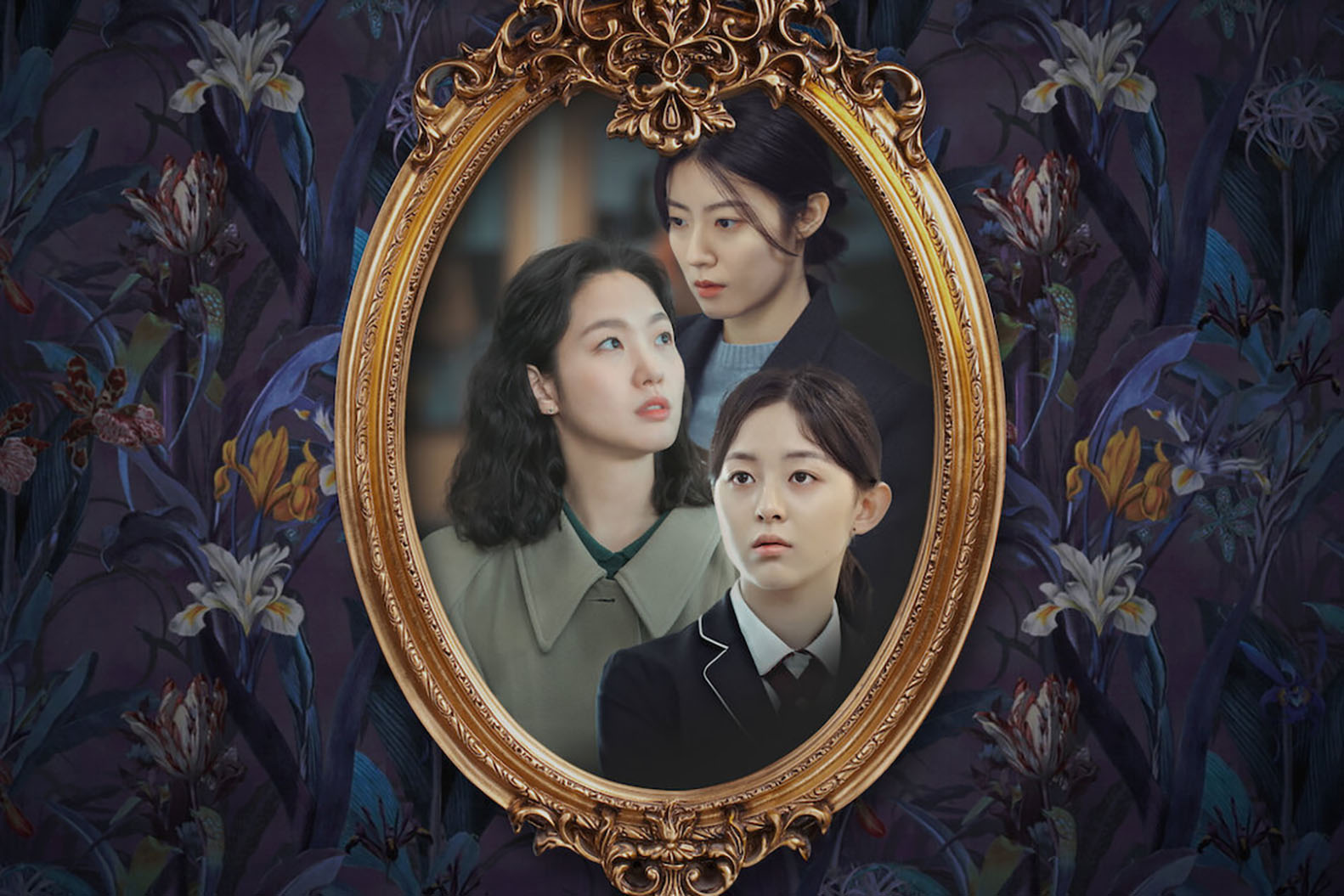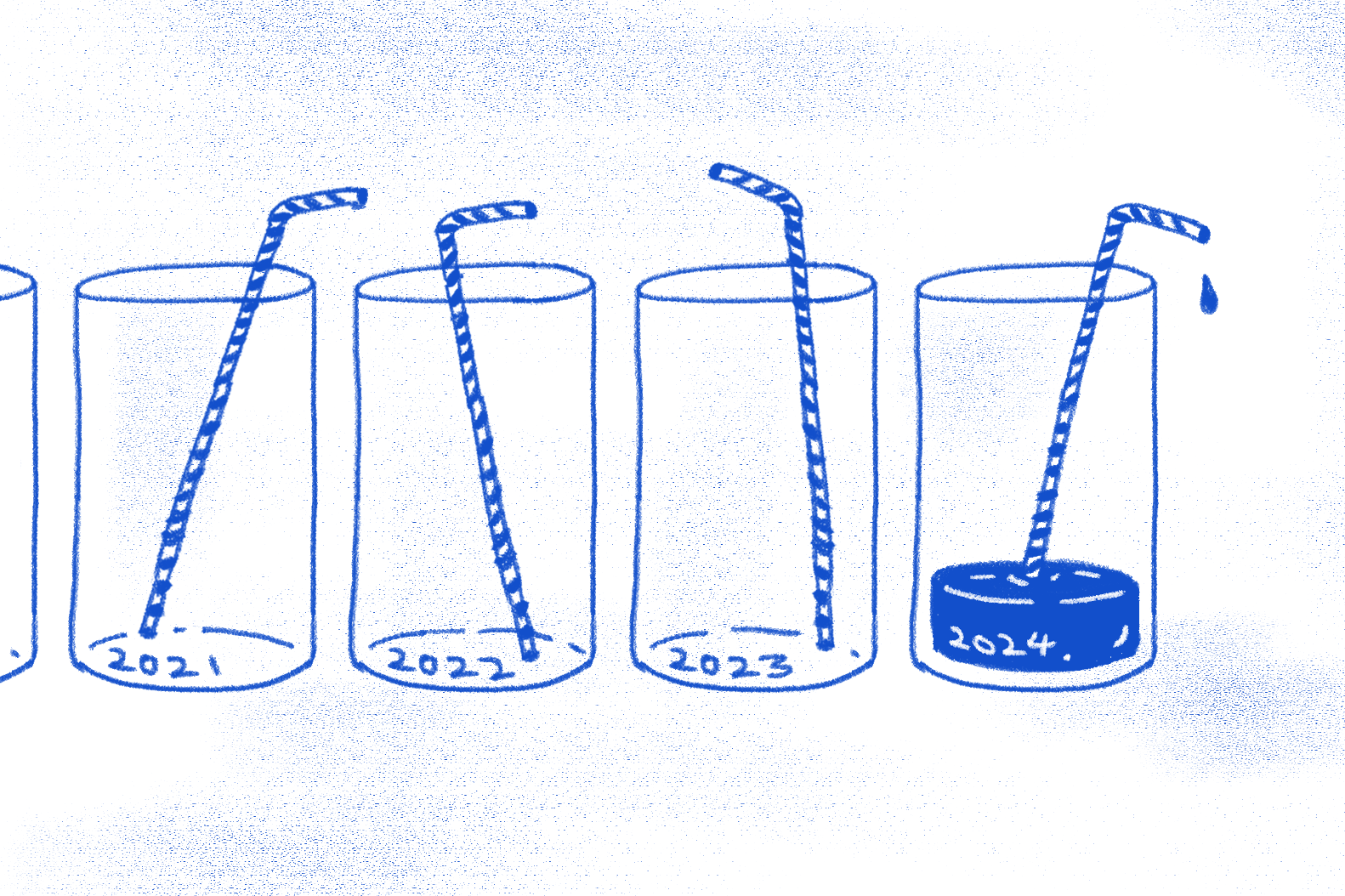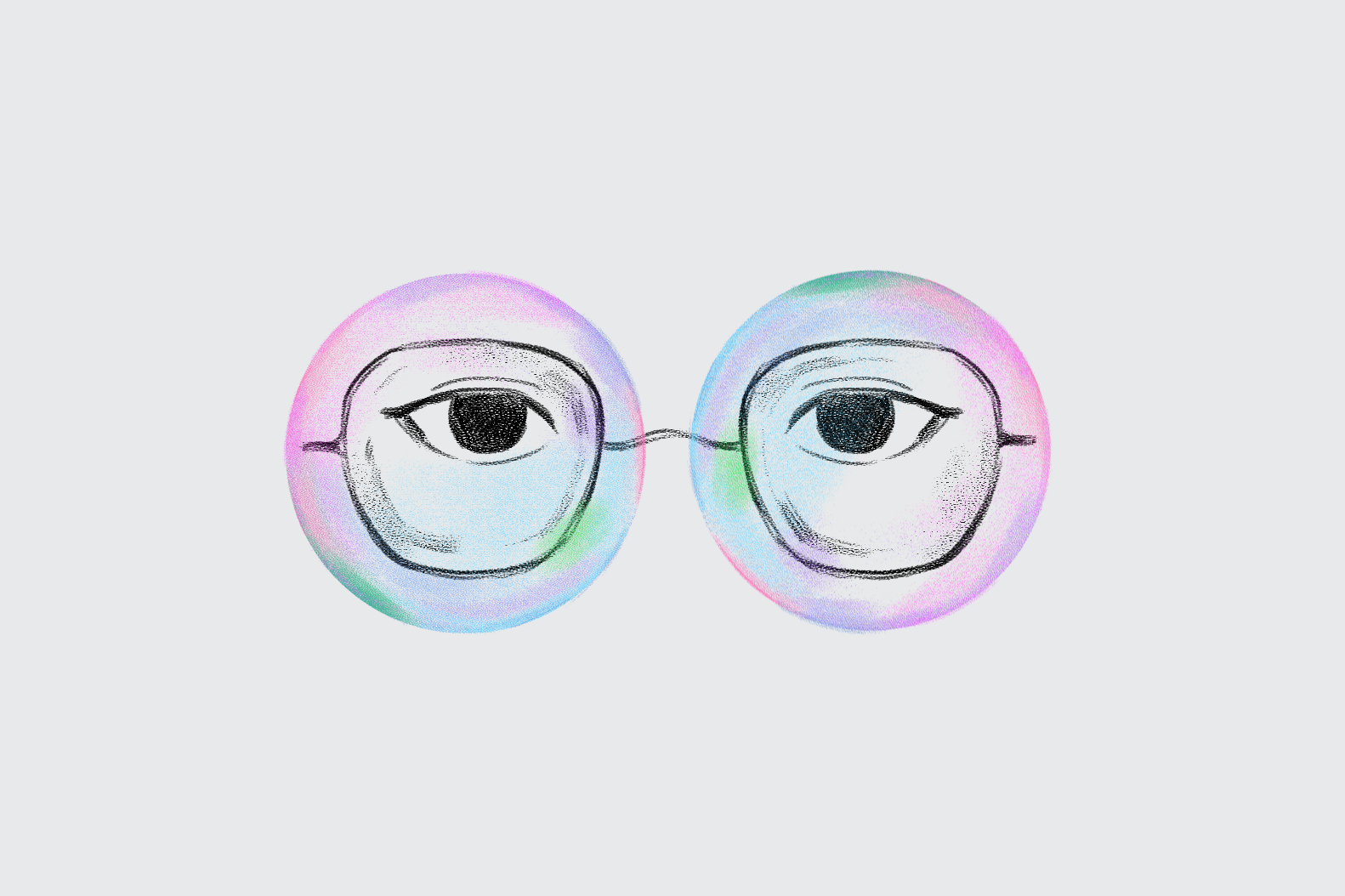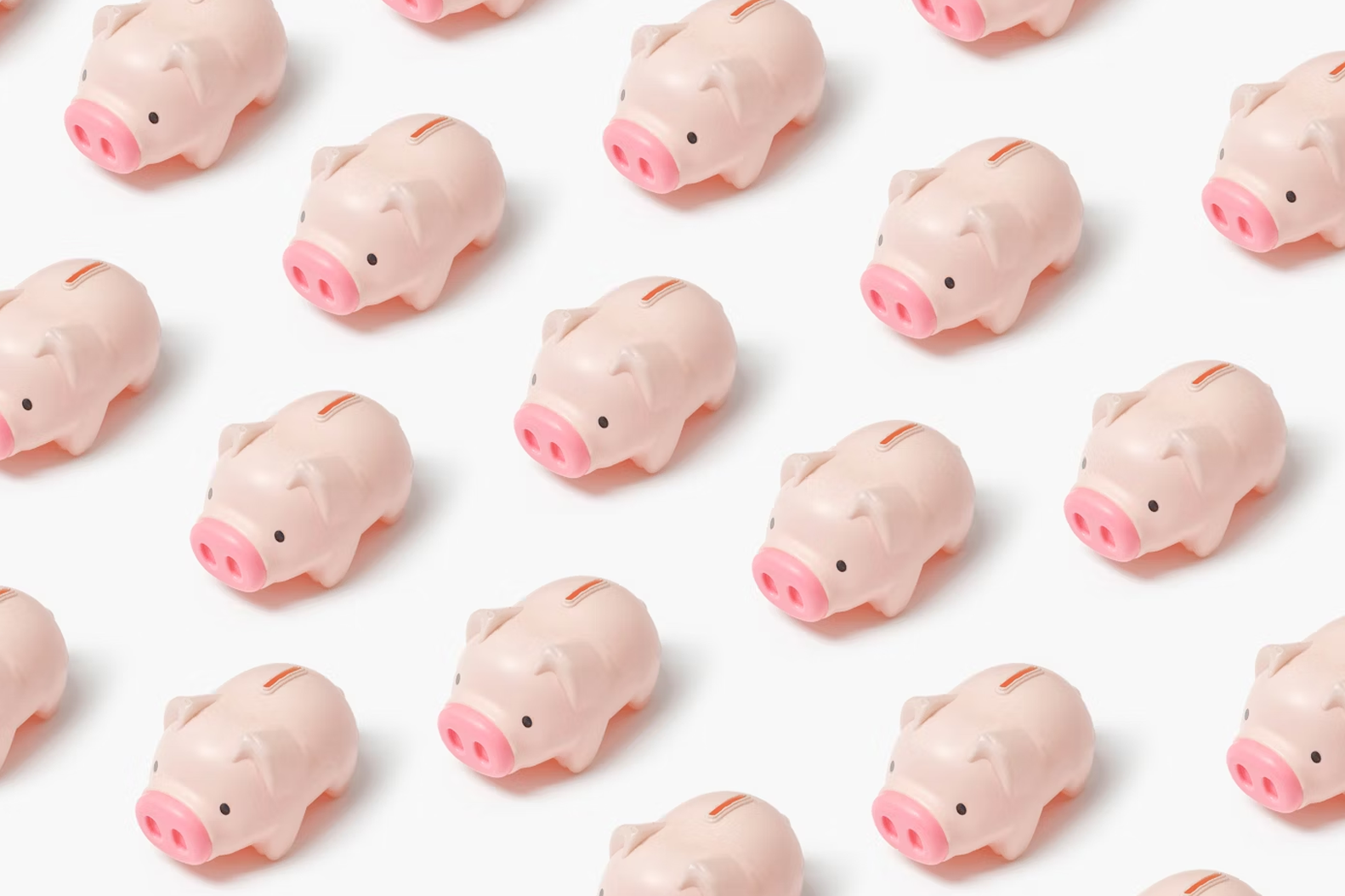Based on the 1868 classic written by Louisa May Alcott, Netflix’s new K-drama Little Women has been on the global and local Top 10 list for the past four weeks and has since occupied the top spot in Singapore.
The series features a star-studded cast: Kim Go-eun (Goblin), Nam Ji-hyun (100 Days My Prince), Park Ji-hu (All of Us are Dead), Wi Ha-joon (Squid Game) and Uhm Ki-joon (Penthouse).
Some of the scenes were also shot in Singapore and features familiar places such as the Fullerton Hotel, MacPherson MRT station and Robinson Road.
In the original novel, the four March sisters endure years of poverty under the watchful eye of their mother. Having lost all his money, their father is serving as a chaplain for the Union Army in the American Civil War, far from home.
Despite that, they are still snug and happy.
Poverty is not just monetary. Poverty is a mindset.
In contrast, the three Oh sisters in the K-drama adaptation are not only struggling financially, their parents’ poor decisions in life have also caused them to suffer from humiliation and a lack of parental guidance.
The sisters are deep in debt thanks to their father, and their mother runs off with whatever remaining cash that they have.
Put them side by side and you’ll see that the Oh sisters don’t wear poverty with genteel dignity like the March sisters.
Poverty has shackled them tight and weighed them down like chains. Bitterness and resentment runs deep in their veins.
The familiar story of perseverance in the face of poverty, now set in present-day Korea, features a series of suspicious deaths, embezzlement and corrupt activities by the rich and powerful.
“Money is transient, so it makes you anxious.”
We find out in passing that eldest sister In-joo is a divorcee after finding out that her husband was a con man.
She had to face the fact that marriage wasn’t the gateway to financial security or freedom. She laments that money is the thing that occupies her thoughts all the time — she goes to bed worrying about how to make ends meet and wakes up worrying about when is her next paycheque.
To her, the transient nature of money is a main source of her anxiety.
And with her parents being either absent or incompetent, she’s had to play the role of father and mother to her younger sisters.
In-joo says that the first thing she wants to do when she has money is to buy a good winter coat.
“Winter coats are a status symbol. In summer, your clothes don’t show how poor you are. But winter clothes are expensive.”
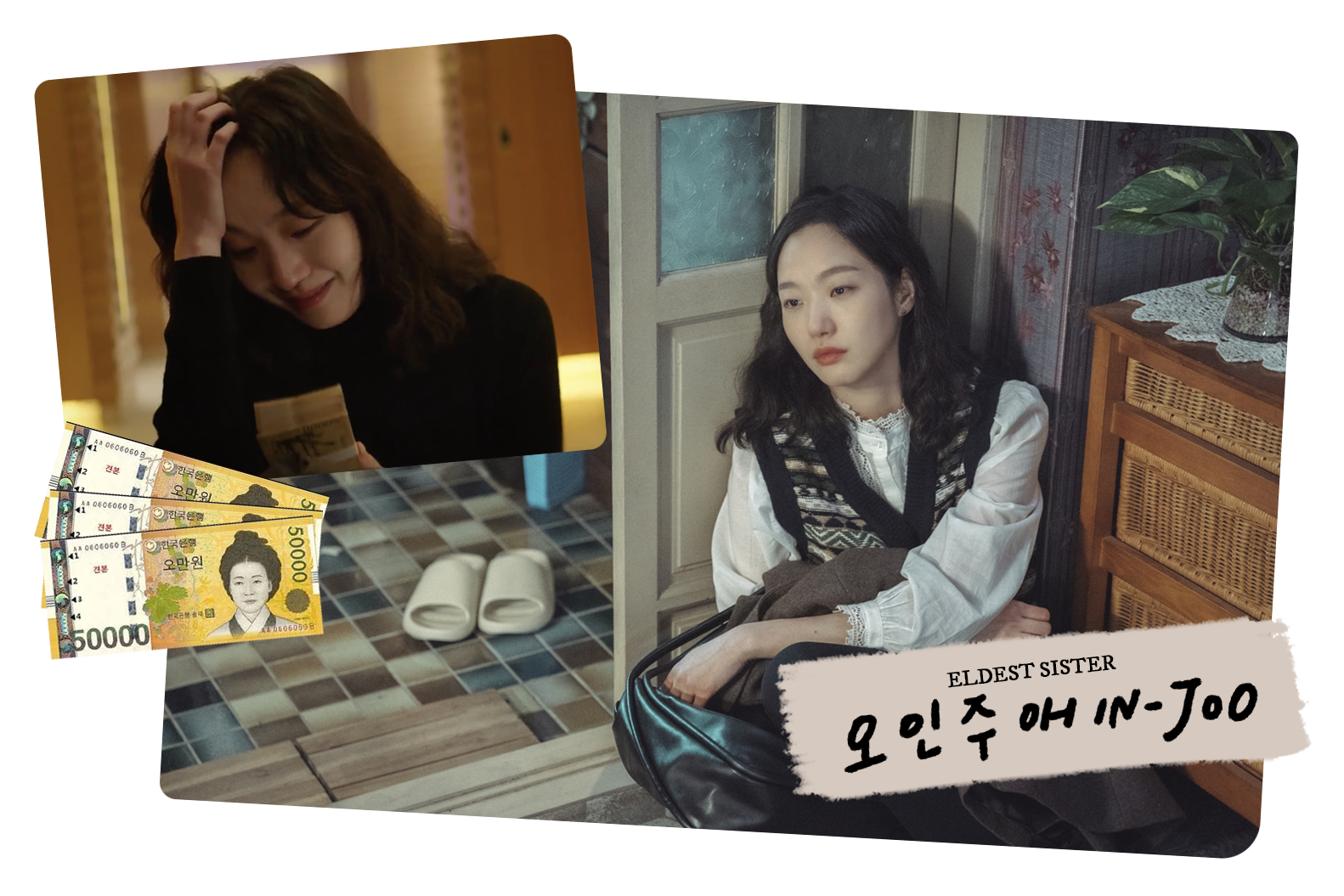
It’s sad, but the desperation in her voice is palpable. The sisters have grown up poor and the biggest luxury they could ever afford was 1-for-1 ice cream from the convenience store.
“I counted money in my head for fun. When it was a lot of money, I’d convert it into amounts of food. A hundred red bean buns. A hundred bowls of jjajangmyeon. That was the only way I could know how much all that money was worth.”
Sure enough, when she somehow ends up in possession of a huge sum of money, the first thing she does is an all-out shopping spree of random items and clearing out the (full-priced, not 1-for-1) ice cream section at the convenience store.
“She’s so tenacious because she grew up poor.”
“Aren’t you even bitter about being treated differently? Did you grow up poor? You never complain.”
Middle child In-kyung is a journalist, but her career has been flatlining for the longest time.
She tries her best in everything she does — even risking her life to report the news in the middle of a typhoon. But her efforts get her nowhere, and her colleagues look down on her.
To them, In-kyung’s perseverance says nothing about her work ethic, but only shows how she must have grown up the hard way.
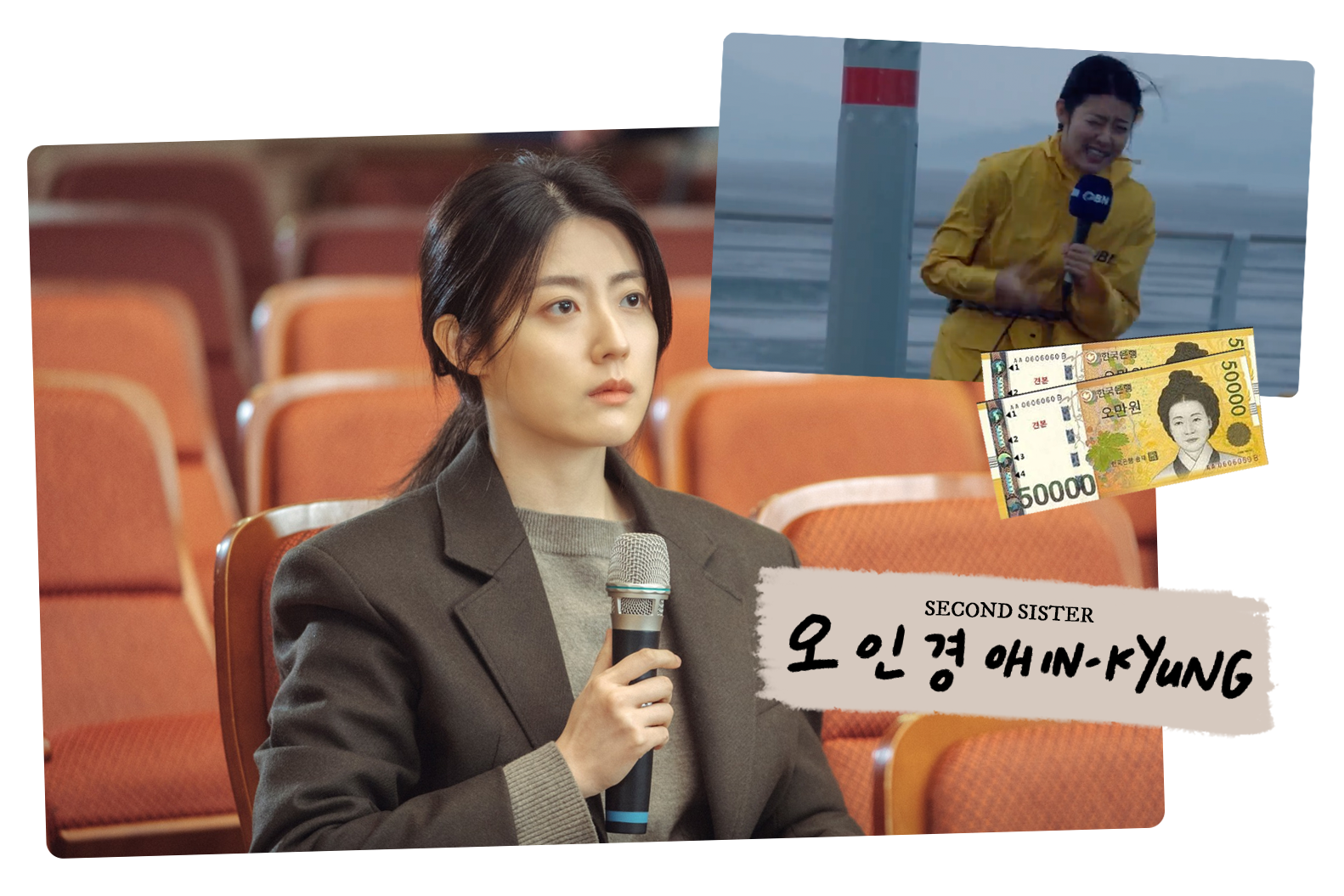
In-kyung struggles in silence at work and secretly replaces her mouthwash with hard liquor so that she can drown out all her emotions. She ends up getting exposed by a rival colleague, gets sent to a disciplinary committee for signs of alcoholism and eventually loses her job.
Meanwhile, In-joo and In-kyung feel responsible to give their youngest sister In-hye the most normal childhood possible.
In-hye has a school trip to Europe coming up, so the sisters save up so that she can sign up for it. However In-hye has no expectations that the trip is happening for her, so she already told her teacher that she wouldn’t be signing up for it.
In-hye finds her sisters burdensome — she hates the fact that they are so willing to suffer for her sake and identifies that as a source of weakness and defeat.
Their love for her is suffocating and she decides she will forge her own way out of poverty.
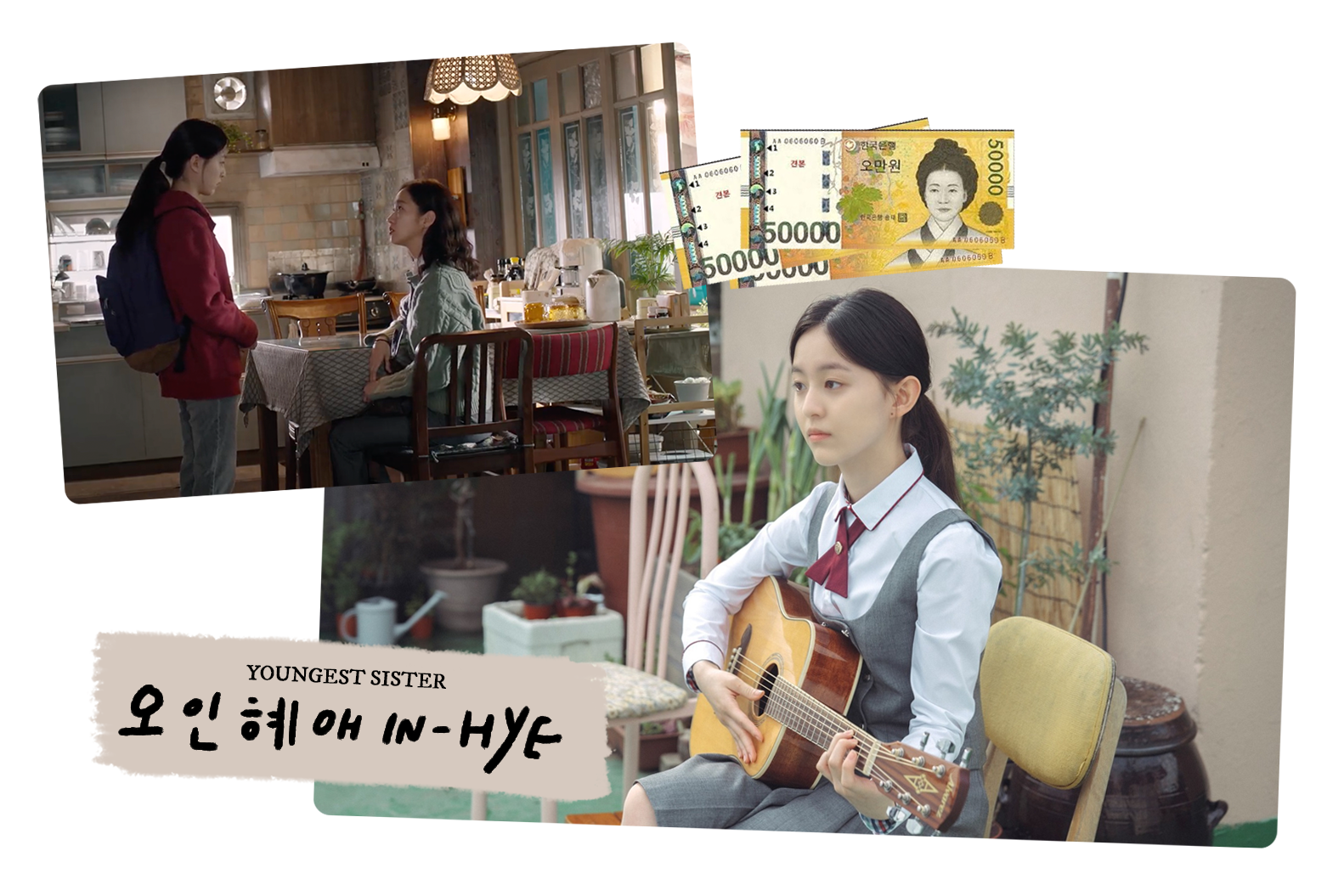
There’s a lot in In-joo’s facade of cheeriness, In-kyung’s constant endurance and In-hye’s resigned acceptance of poverty that I identify with.
Growing up in a family hit badly by the Asian financial crisis in 1997, I was brought up with the mentality that one should work hard in life to climb out of the bottom of the food chain.
Study hard. Win awards. Get into good schools. Apply for internships. Increase my career prospects. And above all, do not complain. Suck it up.
The very first time I got paid my salary, I went to the gelato store with another colleague and we ordered a scoop of the most premium flavour. We had been counting down the days to payday and eyeing that particular flavour for weeks.
In that moment, I felt like I had made it.
And I remember very clearly this one day when I was in junior college.
I was resting my head to get some shut-eye in the co-curricular activity room when I heard my peers come in. They sat a distance away, but I would never forget what they said.
“I heard her family is super poor, that’s why she’s not going to Europe for the competition. These people only work hard at acting pitiful.”
They were talking about me. We had a competition in Europe coming up and it cost $4,000 a person. I had just submitted my withdrawal from the trip.
But little did everyone know that my dad had just undergone an emergency operation that was not covered by any insurance or healthcare schemes. Overnight, we found ourselves in a five-figure debt. As a result, I never told my parents about the Europe trip – even until today.
I cried secretly in my room that night because I was furious.
I was bitter about being treated differently, yet I didn’t dare complain about it because it’ll make me stand out. I was bitter that I had to make the sensible decision for the family while feeling suffocated by our situation.
While we struggled financially, I knew that I worked hard. I was not a charity case. I was confident that I had the skills and the capability. I just never had the opportunity.
Can money ever buy you happiness?
I spent a bulk of my youth struggling with money.
The worries of life. The deceitfulness of wealth. The trappings of success. Before I knew it, these things started to consume me.
But over time, I learnt that true happiness does not come from monetary objects.
In-joo broke down the night she returned from her shopping spree. In-kyung did not have a happy childhood growing up with her rich aunt. In-hye was more often uncomfortable than at ease while she was staying with her rich friend’s family.
In all of these moments where they had a rare taste of what financial abundance felt like, they were met with a greater sense of emptiness.
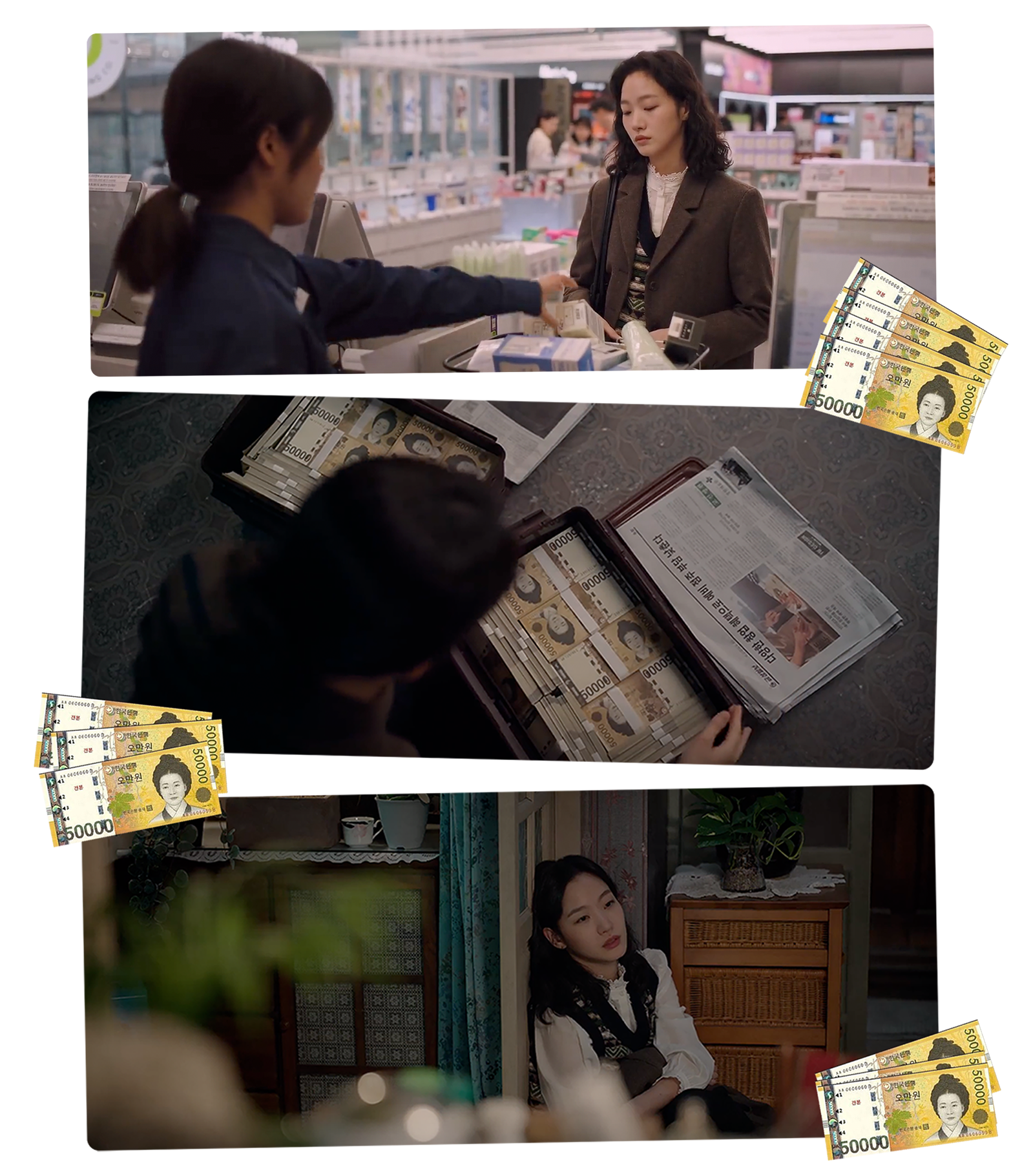
Poverty is not just monetary. Poverty is a mindset.
And the poverty mindset is incredibly destructive because it also puts us in the role of a helpless victim.
It enables us to sit back as spectators to our own destiny. It makes us believe that everything that happens to us is due to external reasons. We have no part to play at all in how our lives pan out.
And this is perhaps what is inspiring about Little Women amid all the plotting, corruption and drama.
In-joo’s tenacity to fight against the powers of the rich and famous. In-kyung’s determination to never bow down to temptations. In-hye’s ability to remain clear-headed in all situations.
The three sisters’ resolution and desperation to craft their own destiny is an immense uphill task.
But as I watch them bump around the various obstacles they face, I can’t help but cheer for them to succeed in their quest for financial freedom and true happiness.
The last two episodes of Little Women will be released this weekend on Netflix.
Liked this? For more stories on other K-dramas, check out these links below.
- Have you seen Little Women? Like it or nah?
- Define money. What is your relationship with money?
- Are there areas in your life that you are poor in?


